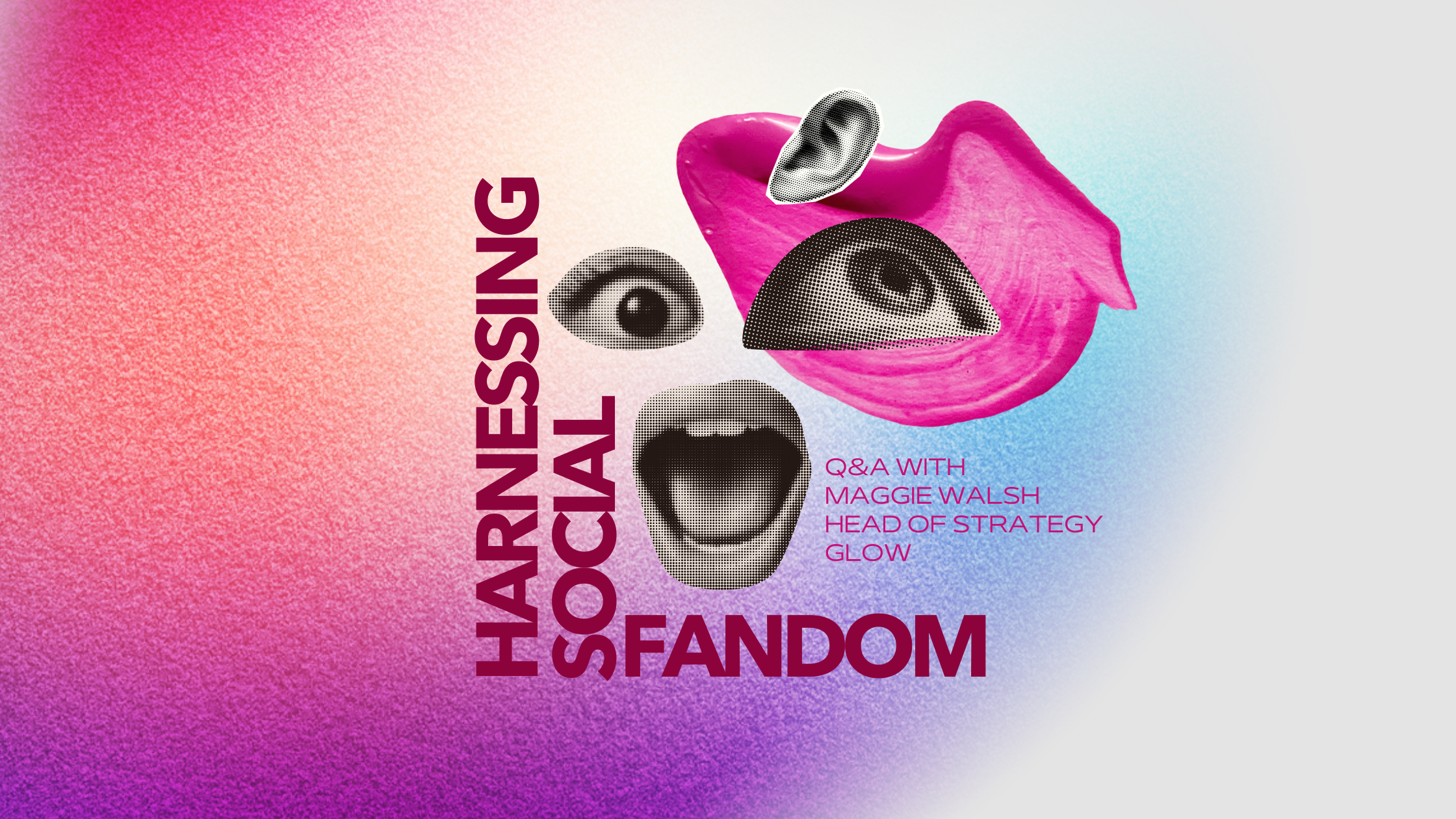by Jordan P. Kelley, Content Director, BrandStorytelling

Want weekly exclusive brand storytelling content like this direct to your inbox? Subscribe to the Brand Storytelling Newsletter.
In an era where traditional advertising channels are undergoing significant transformations, the narrative of brands is continuously shaped by the intersection of content marketing and cultural moments. Fostering brand affinity within the dynamic landscape of cultural moments demands a nuanced understanding of engagement, particularly through fan communities. Maggie Walsh, Head of Strategy at GLOW, posesses that nuanced understanding as a result of her unique resume born from her long-standing passion for social fandom.
Getting her start as a teen managing Mariah Carey’s website and fan engagement campaigns, she went on to rise through the ranks of music marketing, managing digital and social strategy at Sean Combs Enterprises and Bad Boy entertainment. Over a decade ago she made the shift to the agency side and has since led brand strategy on highly successful campaigns for major brands from Absolut to Oreo.
BrandStorytelling caught up with Maggie to learn more about the basic value of fan communities, the pitfalls of alienating fans, and how brands can better harness cultural moments and fandom properly:

Maggie led the strategy behind several of Oreo’s biggest campaigns to date, including Oreo’s Dunk in the Dark Campaign.
As traditional advertising channels evolve, what role does content marketing play in building brand affinity through cultural moments?
Brands are a story told over and over. Content comes into play by being able to add new chapters to that story and culture provides the context.
Fandom can be a powerful force for engagement. How can brands effectively tap into existing fan communities to promote their products or services?
Fandoms are equal parts passionate and fickle. It’s important to not act too self-serving and instead ask how you can serve them. Ask yourself: what currency does your brand or product serve fans’ needs and desires? This can be things like access, recognition, co-creation, or community.
In an age of social media and real-time communication, how can brands respond effectively to cultural moments as they unfold?
Don’t wait until the moment is unfolding to decide what to say. Brands that seemingly respond effectively to cultural moments are the ones who aren’t reacting at all: they’re acting. Spend time interrogating your brand’s belief system and codifying what you will or will not act on. Create a system – including lines of approval – for acting quickly.
Can you share an example of a brand that successfully harnessed a cultural moment to create a memorable campaign or promotion?
One of my favorite ones this past year was Ted Lasso’s World Cup letters for the USMT from AppleTV+. It really tapped into the growing soccer fandom in the US, gave it recognition, and served it in such a uniquely Ted Lasso way.

What are some common pitfalls or mistakes brands should avoid when attempting to harness cultural moments and fandom?
1) Authenticity. Trying to act like their fans instead of serving their fans.
2) Credibility. Confusing saying something quickly with having something to say.
3) Consistency. Moving on too quickly instead of building repetition.
What strategies do you recommend for brands to authentically engage with cultural moments without coming across as opportunistic or insincere?
A question I often ask brands who wish to be part of a cultural movement is: Who benefits more from this? Will the brand benefit more from the association with the movement or will the movement benefit more from the association of the brand? For example, pride campaigns in June. Pride is a party, but don’t show up to the party in June if you didn’t show up to the fight the rest of the year. At the end of the day, the only way you can authentically engage with culture is by coming by it authentically.
Looking ahead, what trends do you foresee in the world of cultural moment marketing, and how can brands prepare for them?
In many ways, the world feels like it’s in crisis. The next year is already promising for economic uncertainty, global instability, and more culture-changing events. While every crisis is different, they are always emotional. Brands should prepare for new emotions, behaviors, and needs emerging and consider what role they can have in serving them.
About Maggie Walsh

Maggie Walsh is a marketing strategist with 12 years of experience at ad agencies, TV networks, and record labels. Her career has been built off channeling my cultural curiosity into insightful work and effective team-building that’s helped iconic brands earn new places in culture.



Leave a Comment